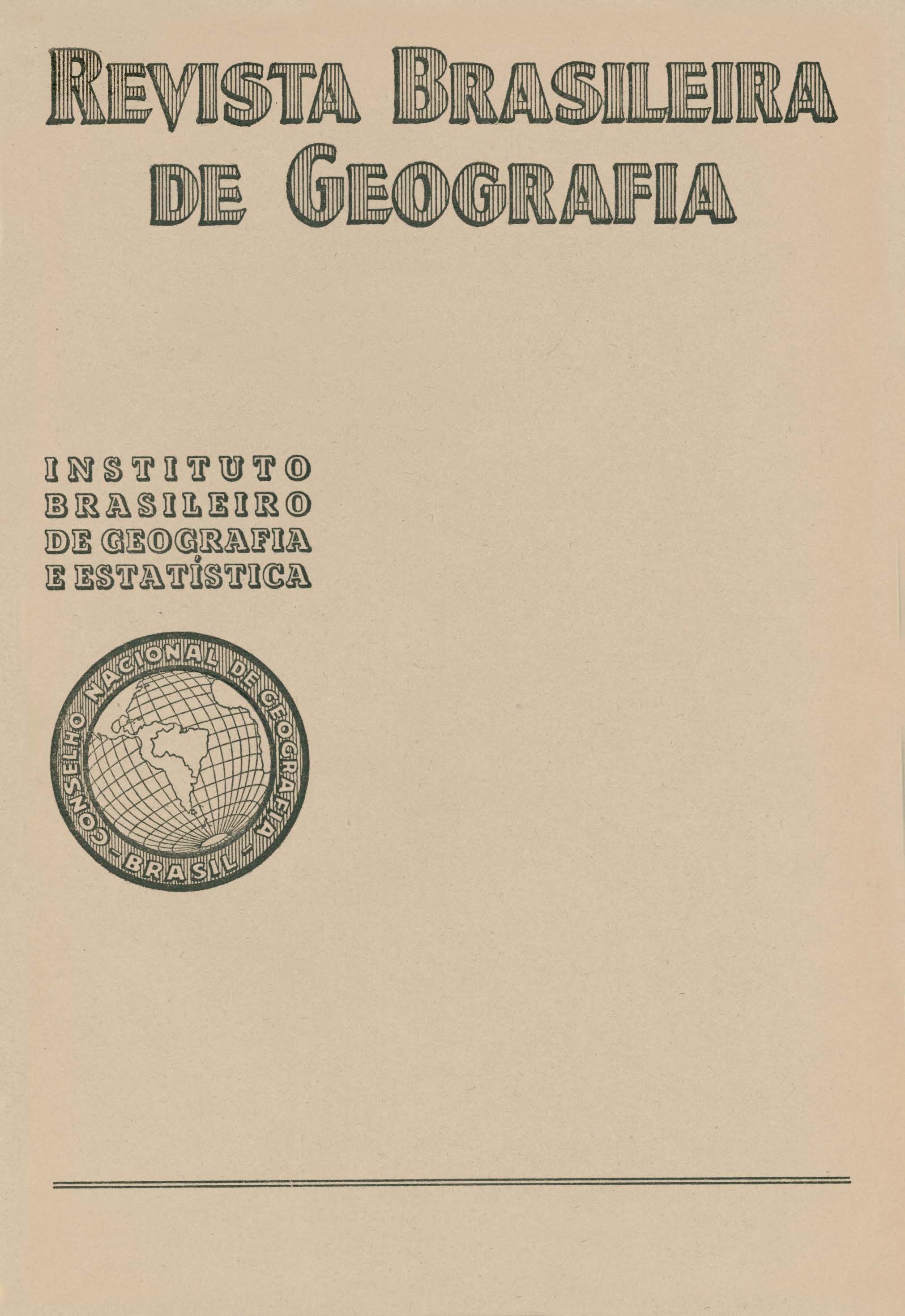O problema da colonização permanente no Sul do Brasil
Keywords:
Brasil, Sul, Geografia da População, Migração, ColonizaçãoAbstract
The author professor o f Geography in the Michigan University (Ann Arbor), U. s. A.,
offers an aid to the study of the problem of permanent colonization in the south of Brazil,
founded in observations caugh1; during a recent voyage.
He examines preliminarily the contrast that exist between city and country, caracteristic very expressive of modern Brazil, and which extends itself to the idcas and living moods. He studies the traditional form of rural colonization the farm with its general simple life, remarked by the temporary utilization of land, fact that is strictly related to extensiva culture and which causes population mouvements towards virgin regions, not · yet exhausted.
Considerating city industries, he shows that in Brazil there is no geographical difference between regions of industrial cities and those of rural plantations, for the farms as the industries find their principal outleap in a same region. He studies also the relations that exist between the railways and large city centers, pointing out their caracteristic aspects, and deduces that railway plays no important part in the binding of cities with the interior of the Country.
The author studies then, the present situation of immigration and rural colonization. He shows that the active colonization of the pauliste pioneer front, was exerced chiefly by Brazilians who carne from poor zones, and only in 20% by foreign immigrants. He compares the actual mouvement, termed as the "march towards the west" with a resembling one happened last century in United States and maintained by immigration in large scale. He examines the Brazilian zones favorable to colonization, pointing the northeast region of the state of Paranã as the country best agricultural Lands.
The writer detains himself considerating the causes of actual restriction to immigration
which are here quiet different from those that in United States imposed resembling measures:
In Brazil the principal idea, is the immigrant assimilation and the care to avoid the formation
of ethnic cyst. He ressaults, in other side, the pressing necessity of resolving the country inter'or colonization problem, that is to say, the called "march towards the west" which will
only be possible, with no prejudica to oriental region, by means of foreign imigration in
1arge scale; but the author confesses in other side the present difficulties to a colonization
politic, due to the impediments which exist in the countries of emigration as also on account
of the present restrictions to immigrant· ingress, restrictions which are necessary "during a
period of madness in all the world."
Concluding his work, the author presents interesting suggestions in the chapter entitled _ "A lesson carne from United States". Refering to colonization of the north of the state of
Michigan, which failed, due to ignorance of soil and climate real conditions in this region.
He tens how the geographer of Michigan University were called to undertake a general survey
of these lands, pointing out the proper surfaces to different cultures, to breeding and to
reforestation, so that the region should return to activity. Thus he proves, that colonization
should be scientifically undertaken, and the geographers should assume the direction of this
work. Finishing the author makes an appeal to brazilian geographers, so as to be done in
Brazil, a geographical intensive survey, with detailed maps that would serve as base to a
well directed agricultural colonization, so as to avoid the misfortune whics happened in his
country, as relates the example he just reported.






